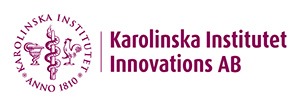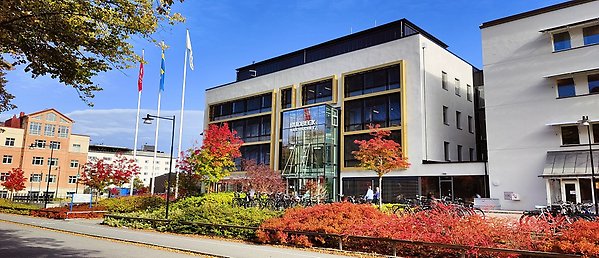[Clinical Talks]Seeing is believing, unraveling the discovery of a centimeter-long macro-bacteria
April 8 @ 09:00 – 09:30 CEST
On April 8, Dr. Jean-Marie Volland, Scientist at Berkeley Lab and Laboratory for Research in Complex Systems (LRC Systems), and Shailesh Date, CEO of LRC Systems (Adj. Assoc. Professor at UCSF),will talk about their recent discovery and characterization of the macro-bacteria Ca. Thiomargarita magnifica. The threadlike single-cell bacterium, commonly found in the Caribbean Mangroves, is visible to the naked eye, and able to grow up to 2 centimeters in length. In a recent effort, an international team studied the “magnificent” organism using fluorescence, x-ray, and electron microscopy, and fully sequenced the genome.
Through a unique strategy of polyploidy, along with compartmentalization of genomic material and protein synthesis in membrane-bound organelle, the organism has been able to grow orders of magnitude over the theoretical limits for bacterial cells. The traditional view, which has almost become dogmatic, is that prokaryotes (bacteria and single-cell microbes) have free-floating DNA, whereas eukaryotes (yeast and multicellular organisms) package their DNA in a nucleus. This new model organism blurs that line and offers amazing potential insights into biological evolutionary strategies, many of which are as yet unexplored. One can only wonder at the type and number of new clinical innovations that will emerge as we continue exploring the frontiers of biology and biological complexity.

Jean-Marie Volland is a Scientist at Lawrence Berkeley National Laboratory (Berkeley Lab) and at Laboratory of Research in Complex Systems (LRC Systems) in Menlo Park California. He obtained his PhD at the Université des Antilles, in the French West Indies, studying biology and tropical ecology in the Indian Ocean and Caribbean. Jean-Marie then continued to pursue his Postdoctoral research at University of Vienna, Austria during 2012-2017. Initially in the Monika Bright´s Lab at the Department of Limnology and Biological Oceanography studying symbiosis in chemosynthetic ecosystems, and then also in the Silvia Bulgheresi´s Lab at the Archea Biology and Ecogenomics Division studying tropical ecology pathways of microorganisms. In 2018 Jean-Marie joined the Berkeley Lab as an affiliate Scientist to continue working on uncovering highly divergent forms of life together with LRC Systems. The story of the discovery of Thiomargarita magnifica dates back a decade ago, when marine biologist Olivier Gros, from the Université of Antilles, first discovered microbial filaments on leaves buried in the mangrove of Guadeloupe. Gros lab member and microbiologist colleague Silvina González-Rizzo identified it to be in fact be one bacterium. Jean-Marie, together with his Université of Antilles colleagues and LRC Systems set forth to methodologically study and categorize the new organism.

Shailesh Date is the CEO and Founder of Laboratory for Research in Complex Systems (LRC Systems). He is also Adjunct Professor of Biology at San Francisco State University and an Associate Adjunct Professor of Epidemiology and Biostatistics at the University of California San Francisco (UCSF). Shailesh obtained his PhD at The University of Texas, Austin in Molecular Biology in 2004, and completed a postdoctoral fellowship at the University of Pennsylvania School of Medicine in 2008, focusing on computational biology of infectious diseases. Between 2008-2015, Shailesh worked as a scientist at Genentech, and during a brief sabbatical in 2013, completed the prestigious Ignite Program at the Stanford Graduate School of Business. He left Genentech in 2015 to join Global Viral (GV), a nonprofit organization with roots in public health research. He founded the LRC Systems in 2019, transforming Global Viral into a new organization focused on complex systems research in a wide variety of areas.
About Global Viral and LRC Systems
Global Viral was founded by Nathan Wolfe in 2007 as the Global Viral Forecasting Initiative (GVFI), focusing on public health and field epidemiology while supporting programs like HIV prevention run by USAID, WHO and other similar organizations in Africa and South East Asia.
In 2012, the organization split into Metabiota, a for-profit company that took over epidemiology and forecasting-related work, and Global Viral, a nonprofit that retained and concentrated on basic research.
In 2019, under the leadership of a new Chief Executive and a new board, the organization reoriented its research towards complex systems and adopted the “Laboratory for Research in Complex Systems (LRC Systems)”, which was initially founded as a new division within GV, as its new name.
https://www.lrc.systems
“Clinical Talks” has been renewed for yet another exciting, innovative, and enlightening season. This season will focus on sustainable innovations within Life Sciences, that have the potential to contribute to a better climate friendly future for our future generations. Also new this year is that the seminar is co-organized in a collaboration between SciLifeLab and KI Innovations .
Season 5, will be held September 2021 until March 2022 with scheduled Talks, during Friday mornings 09-09:30 am via ZOOM (with some time-zone friendly adjustments for our international speakers). Each session consists of a talk given by our invited speaker followed by Q&A. The seminar is an open educational seminar series for our ever-expanding Life Science community.



